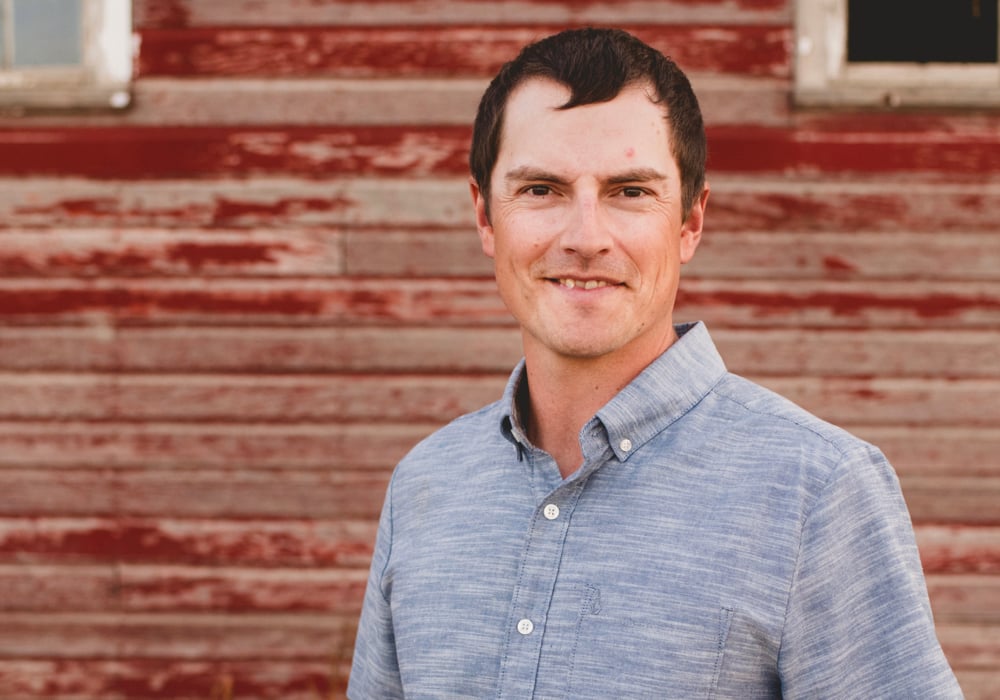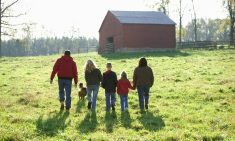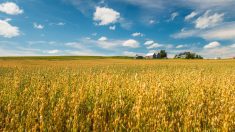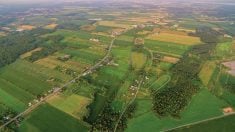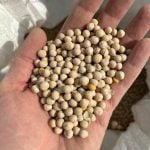The words “leadership” and “management” are often used interchangeably, but there are important differences – and by focusing on leadership, you can ensure you’re putting your energy and resources in the right areas of your farm business.
– April Stewart, CG Associate Editor
“Management is doing things right. Leadership is doing the right things.” It’s a quote that Weyburn, Sask. farmer Jake Leguee borrows from American management consultant Peter Drucker to describe how a leadership training program he enrolled in this year has helped him become better both as a leader and as a manager on his farm.
Read Also

Winter downtime: Organize your farm records now for smoother operation
How to organize farm finances paperwork
Leguee is the third generation on Leguee Farms, a 14,500-acre grain and oilseed farm in the southeastern part of the province, where he farms with his parents, his older sister, a brother-in-law, plus full-time and seasonal employees.
A married father of two young sons, he began farming in 2010 after earning his agronomy degree at the University of Saskatchewan. Schooling, plus lifelong experience on the farm taught him how to manage a farm business. Yet Leguee felt he could be a better leader and he could do more to focus the farm and the entire farm team.
“There’s a lot of people on the farm and there’s a lot of relationship dynamics that we have to try and work through, and family is challenging in that way,” Leguee says. “What we were still struggling with was managing everybody’s expectations, how we expect things to be done, the goals we have… and trying to achieve that alignment.”
That’s when a new leadership training program caught his attention. The new National Farm Leadership Program (NFLP) launched in 2019 to help farmers identify where they can improve their effectiveness as leaders both in their personal and professional lives.
Leguee was one of 10 participants to sign on in January 2020. He did so after having a conversation with LeaderShift Inc.’s chief leadership officer Kelly Dobson, with whom Farm Management Canada has partnered to deliver the program. LeaderShift Inc. is a leader development and coaching firm dedicated to serving small and medium-sized businesses with an agricultural sector focus.
The NFLP sounded like it was something he would benefit from, and like it would fill a gap in his own education. Which it did, Leguee says of the 11-week online course that included ongoing monthly group coaching and one-on-one personal coaching the rest of the year.
“There’s not a lot of courses where you can learn about leadership,” he says, adding this course also had a unique approach for delivery.
“It wasn’t a course where you go into a structured classroom environment or where you’re learning big-picture leadership development. It’s much more about personal development and becoming the best version of yourself.”
The program was created because interpersonal relations are paramount for succeeding in both business and in life, says Heather Watson, Farm Management Canada’s executive director.
The words “leadership” and “management” are often used interchangeably, but slight nuances exist between the two, as per the Drucker quote, says Watson.
By focusing on your leadership, you can ensure you’re putting your energy and resources in the right areas.
“Eventually a challenge comes along that seems to defy resolution. It might be emerging, or a long-standing problem, but it’s not going away. It’s uncomfortable, frustrating, costly, and putting your relationships and even your farm at risk,” Watson says.
“All the advice in the world doesn’t change the fact it’s up to you.”
The main outcomes of the NFLP program are to understand how your own way of leading can be strengthened for better results and improving awareness of yourself and your situation — and what may be preventing you from achieving more, said Watson.
“We teach practical tools and techniques that help improve critical performance areas such as strategic thinking, navigating complex issues, handling emotional or difficult people — including yourself — developing others and developing your resiliency.”
Each participant designs their own practice to create a personal vision and to set goals to support their development as they go through the program. The followup, which helps each individual measure and mark their own progress, makes this a “development program,” compared to a content-focused program.
“Many content-focused programs end just when participants are starting to think about how they might apply what they have heard,” Watson says.
“We find the most impactful programs are those that use your personal data, link you to a network of others going through, or who have gone through, similar situations, and provide a mechanism for implementing a plan.”
Feedback provided to FMC from participants says this aspect of the program has proved especially valuable, providing them with a means to practice what they’ve learned — and keep practicing. (See “Course Content and Timeline” below.)
The value of being an effective leader cannot be overstated. And what makes an effective leader is well understood and can be measured and benchmarked, not unlike a soil test or financial reports.
Studies have shown that it accounts for 37 per cent of business performance, with the top 25 per cent of assessed leaders typically running businesses that produce three and a half times the profits of the bottom 25 per cent of leaders.
In other words, even modest increases in leadership effectiveness will have a payback many times the cost of investing to improve it.
“I’ve been saying that leader effectiveness will be as important going forward as financial literacy was in the ’80s and ’90s,” says LeaderShift Inc.’s Dobson.
“Not everyone sees it yet, but it’s already here, and those who are preparing will be in the best position to adapt to the challenges and opportunities that come their way.”
Participants who shared feedback with Farm Management Canada after taking part had high praise for the program, saying it benefited them both professionally and personally. Some indicated it has made them not only better people to work with, but improved their marriages and family life. Others said this helped identify unhealthy work habits which had been affecting not only themselves but their team, peers and family, and to swap these for better ones, and to make health and wellness a priority. Other feedback was that the program boosted self-awareness, helped lessen fear of conflict, enabled them to have more open conversations and improved their ability to respond to situations more appropriately.
Leguee said the program has made him feel more capable of communicating what he wants the farm to accomplish and to feel more confident making decisions and in how he interacts with everyone on the farm. It has added structure to managing the farm and the farm team and he has more mental resiliency and deals with stress better.
“The way that I would say that I’ve changed is that I’m more balanced and I’m more present in the moment,” Leguee says. “The thing that’s really changed for me is how I talk to and help the people around me on the farm. It’s been a game changer in the way that I manage the farm.”
Course content and timeline
What to expect if you enrol in the 2021 National Farm Leadership Program
The main program takes place from January to April, followed by monthly group coaching sessions and one-on-one coaching for the remainder of the calendar year.
Starting in January, participants gain access to the LeaderLab, which is accessible 24/7, to take in lessons and stay connected with fellow participants.
Participants can expect to spend around four hours/week dedicated to the lessons and exercises. A crucial part of the online learning component is the discussion forum where participants are challenged to reflect on their learning using real life examples and practice key exercises within their unique situations, reporting back to the group on the results. This allows participants to quickly apply what they learn to their current circumstance. Fellow participants and program coaches provide commentary, feedback and advice for consideration, learning from one another’s experiences. While the majority of the learning is asynchronous, the group gathers together a number of times via Zoom to connect and reflect, guided by the program coaches.
In the beginning weeks, participants also undergo a leadership assessment to determine their leadership style and opportunities for improvement compared to an international database of leaders. The assessment provides the necessary baseline to identify opportunities for growth and improvement and is used in the development of each participant’s personal development plan.
A three-day residency takes place in the seventh week of the course. The residency is an opportunity to put into practice the lessons from the LeaderLab with fellow participants. There are no lectures, no videos, no PowerPoints, just opportunities to practice strengthening leadership effectiveness and create a personal development plan in a safe space.
Following the 11-week program, the coaching provided keeps participants connected and reporting on their progress for the remainder of the year.
What is the program schedule?
- January 25, 2021 — Online Learning Community begins
- March 9-11 — Three-day residency, Victoria, B.C.
- March 16 to April 10 — Online Learning Community continues
- April to December — Unlimited individual and monthly group coaching
How much does the program cost?
$8,400 which includes 24/7 access to the LeaderLab, a personal leadership assessment, the 11-week online course, the three-day residency (including accommodation and meals) and the monthly group coaching and one-on-one personal coaching for the remainder of the year. The NLFP is eligible for up to $2,500 cost-share funding for farmers in Saskatchewan, Manitoba, New Brunswick, Newfoundland, P.E.I. and Yukon Territory. Farmers should make inquiries with their provincial or territorial Ministry of Agriculture for eligibility requirements.
– This article was originally published in the November 2020 issue of Country Guide.

